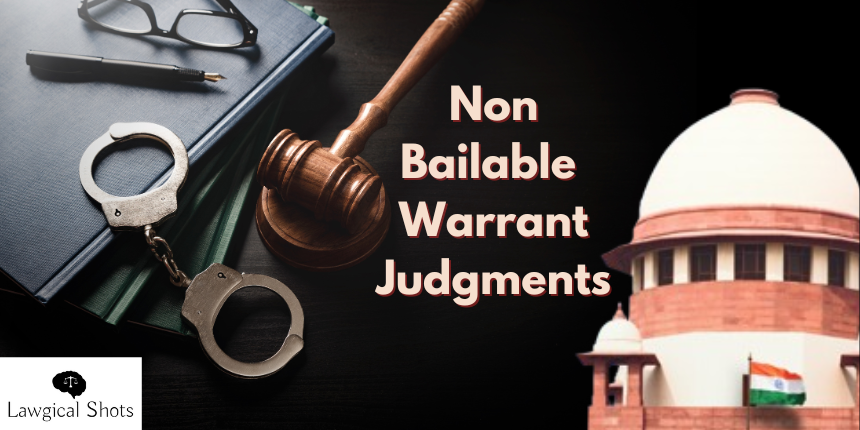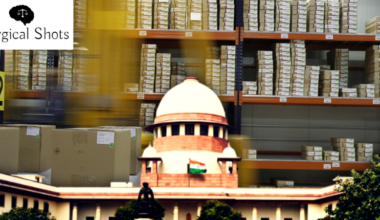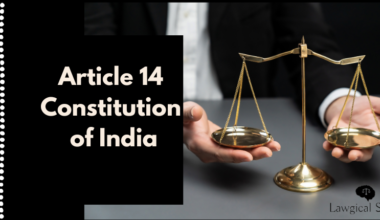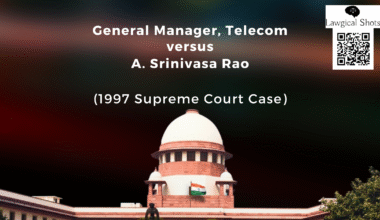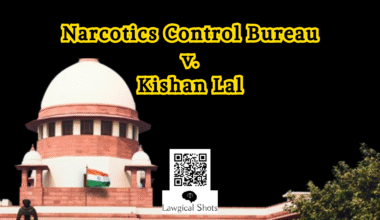Courts are the pillars of justice. Advocates are the bridge assisting the Courts and helping clients with legal recourse. So in a criminal matter, how can an advocate help a client against whom non-bailable warrants are issued? There are several Supreme Court decisions pertaining to non-bailable warrant when the Apex Court discussed liberty of a person and securing his/her appearance. Given below are some important judgments around the same.
Supreme Court Judgments on Non-Bailable Warrant
Non-bailable warrants only if charged of heinous crime or likely to evade
The supreme Court in Sharif Ahmed and Another v. State of Uttar Pradesh and Another (decided on May 1, 2024) reiterated the settled position of law that “non-bailable warrants should not be issued, unless the accused is charged with a heinous crime, and is likely to evade the process of law or tamper/destroy evidence.”
No anticipatory bail for non-bailable warrant
In the case of Srikant Upadhyay and Others v. State of Bihar and Another (decided on March 14, 2024), the Supreme Court clarified that in a case when non-bailable warrant or proclamation is issued against the accused, he/she was not entitled to invoke extraordinary power of anticipatory bail.
First summons, then bailable and non-bailable warrants
The Supreme Court judgment on non-bailable warrants in Satender Kumar Antil v. Central Bureau of Investigation and Another (decided on July 11, 2022) suggested that the Courts have to adopt the procedure in issuing summons first, thereafter a bailable warrant, and then a non-bailable warrant may be issued, if so warranted.
More circumspection by the Trial Court
The Apex Court in Vikas v. State of Rajasthan (decided on August 16, 2013) through Section 319 of Criminal Procedure Code, 1973 clarified that the provision demands enhanced circumspection by the Trial Court exercising extraordinary powers, to be used sparingly to ensure that the “principles of rule of law and basic tenets of criminal law jurisprudence are not vitiated”. The Bench expressed that “the issuance of non-bailable warrant in the first instance without using the other tools of summons and bailable warrant to secure attendance of such a person would impair the personal liberty guaranteed to every citizen under the Constitution.”
Justification for the term ‘non-bailable’ when not expressly used in CrPC
The Supreme Court decision on non-bailable warrants laid a similar stance in Raghvansh Dewanchand Bhasin v. State of Maharashtra and Another (decided on September 9, 2011). In a challenge against use of expression ‘non-bailable’ warrant in the absence of any such term under Section 70 or 71 of CrPC, the Supreme Court explained that “the endorsement of the expression ‘non-bailable’ on a warrant is to facilitate the executing authority as well as the person against whom the warrant is sought to be executed to make them aware as to the nature of the warrant that has been issued.”
The Court made it clear that non-use of such expression in the Code does not itself render the warrant bad in law. While discussing the terminology, the Court required the Courts to be extra-cautious while directing issuance of non-bailable warrants since wrongful detention amounts to denial of constitutional mandate under Article 21 of the Constitution.
Landmark Supreme Court Judgment on Non-Bailable Warrants
In case of Inder Mohan Goswami & Another v. State Of Uttaranchal & Others (decided on October 9, 2007), the Supreme Court reprimanded the issuance of bailable non-bailable warrants casually and mechanically. Through this Supreme Court judgments on non-bailable warrant, it was observed that “The issuance of non-bailable warrants involves interference with personal liberty. Arrest and imprisonment means deprivation of the most precious right of an individual. Therefore, the courts have to be extremely careful before issuing non-bailable warrants.”
Diverse considerations for Court exercising discretion while issuing warrants
In State of Uttar Pradesh v. Poosu and Another (decided on April 2, 1976), the Apex Court reiterated that “Whether ill the circumstances of the case, the attendance of the accused respondent can be best secured by issuing a bailable warrant or non-bailable warrant is a matter which rests entirely in the discretion of the Court. Although, the discretion is exercised judicially, it is not possible to computerise and reduce into immutable formulae the diverse considerations on the basis of which this discretion is exercised. Broadly speaking, the Court would take into account the various factors such as, ‘the nature and seriousness of the offence, the character of the evidence, circumstances peculiar to the accused, possibility of his absconding, tampering with evidence, larger interest of the public and State’.”
Also read – Misuse of IPC Section 498A – Times when Courts imposed penalty
